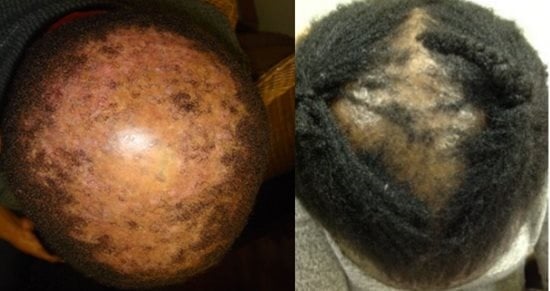
A University of KwaZulu Natal (UKZN) professor has discovered that a newly identified gene may very well be the root cause of hair loss in women of African descent.
Internationally- renowned dermatologist, Professor Dlova, along with her team of scientists conducted the study from 2013 to 2017, recruiting several patients with Central Centrifugal Cicatricial Alopecia (CCCA) from Durban and Winston-Salem, North Carolina.
Damaging chemical products
CCCA is defined as hair loss or spot balding that starts from the central (crown) part of the scalp and radiates outward in a circular pattern. It causes destruction of the hair follicles leading to scarring and permanent hair loss.
The root cause of this condition has always been a mystery and alluded to the use of damaging chemical products on the hair as well as the application of heat brushes, hot combs or straighteners.
It has often been confused with female pattern hair loss or common baldness which is a completely different entity.
In a statement issued by the university, Professor Dlova said, “This is probably the biggest breakthrough in South African Dermatology.
“This discovery is a first in the world, and it followed links to my earlier publication of 2013, in which I reported for the first time a familial association in a cluster of black South African families with CCCA and have been following the 15 families for five years, and seven years later a gene has been identified.
Larger studies needed
“This has huge implications on early diagnosis, prevention and possible future targeted therapy of CCCA.”
The study, titled Variant PAD13 in Central Centrifugal Cicatricial Alopecia, found that the gene – peptidylarginine deiminase 3 (PAD13), which helps mature proteins for proper hair shaft growth, was mutated in most of the affected patients suggesting that the disease is genetically heterogenous.
Scientists also found that the distinct variants in PAD13 in each of the disorders may account for the difference in clinical outcomes.
Research suggests that PAD13 mutations predispose individuals to CCCA and this presents or is triggered by environmental factors, like damaging hair grooming practices – the use of chemicals, traction, heat, braids and weaves.
This implies that in affected families, the above-mentioned practices should be totally discouraged. Larger studies are still needed in order to justify genotyping of asymptomatic women.




 Publications
Publications
 Partners
Partners












